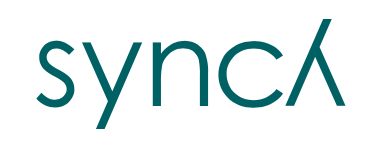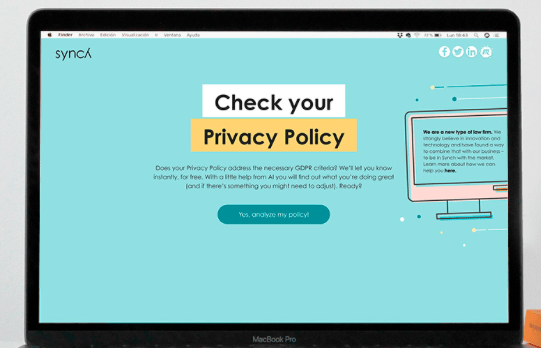
Welcome to another Legal Tech Leaders Profile of people pioneering with legal automation, AI and data analytics in law firms and inhouse legal teams.
Today our Legal Tech Leader is Magnus Sundqvist, Head of Digital Services at Swedish law firm Synch, which has developed some significant legal tech applications of its own.
What is your role inside the firm and how much of this role connects to areas such as using AI tools and automation?
My role is Head of Digital Services at Synch, managing internal software development work and heading the provision of legal services digitally to clients.
We have found that digitising legal services provides considerable time and cost-saving benefits for our clients.
We firmly believe in and support innovation and think that AI is the future, not only in the legal profession, but also in other domains of work.
Considering that, Synch became the first law firm in the Nordics to have developed its own client-oriented AI solution – PrivacyPolicyCheck.Ai – from the ground up and in-house. We are also one of the few law firms who have AI developers who are also qualified lawyers.
The tool is available for free internationally and so far it has processed more than 1,000 privacy policies from 42 countries since its launch three months ago.
What are the main legal automation and AI systems that your law firm is currently using?
We use our PrivacyPolicyCheck.Ai for high-level analysis of privacy policies from a GDPR compliance perspective. The tool employs a combination of 18 neural networks, the first being the ‘gatekeeper’, checking whether a submitted document is a privacy policy or not, while each of the other 17 are responsible for the respective GDPR requirements.

And there is WeSynch, which is built on top of the HighQ platform, for contract management, both internally and for clients.
The portal also provides for document automation (templating), secure document exchange, and digital signature via an integration with DocuSign. And, we use NetDocuments for internal document management and review workflows.
Does your firm have a dedicated ‘Innovation Team’ and/or a group focused on new legal technology/new types of service delivery?
The Digital Services business unit, with a presence in Stockholm and Oslo, is leading innovation at Synch.
Synch’s AI development work, which is part of the digital services strategy, is headed by Sergii Shcherbak, a qualified lawyer and software developer.
Does your firm employ data scientists, and if so, what are their main objectives?
Synch’s Digital Services business unit employs qualified lawyers who are also software developers. One of their responsibilities is AI development work, which requires analysis of legal data and coming up with fastest and most efficient ways to structure that data.
When it comes to the impact of using automated systems, how much of a benefit have they been so far?
Definitely saving time and increased productivity, both for us and our clients.
We would also add the obvious cost reduction for clients.
Do you feel that clients are asking for the use of AI and automation technology, or is this something the firm is leveraging on its own initiative?
Currently our use of AI is driven primarily by our own innovation strategy.
However, we have started noticing more inquiries regarding the use of AI and legal automation systems from our clients.
Recently, we had a discussion with one of the largest IT companies in Sweden concerning the feasibility of legal AI for large volume document review.
Thank you, Magnus, good to hear. You are a legal tech leader!
( P.S. if you work in a law firm or in-house team with a focus on automation, data and AI, and you’d also like to share your insights then drop me a line: richard@artificiallawyer.com )

1 Trackback / Pingback
Comments are closed.